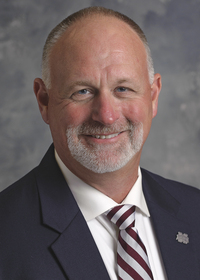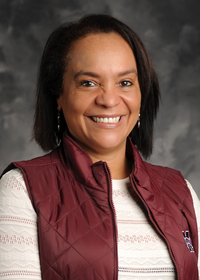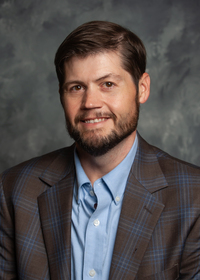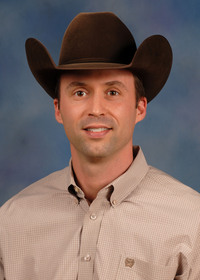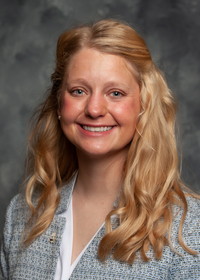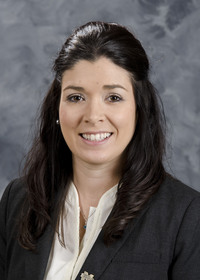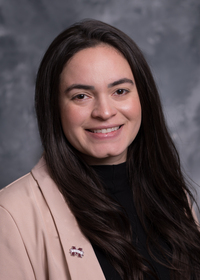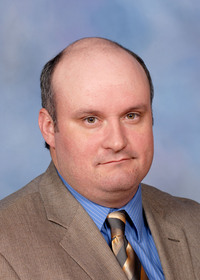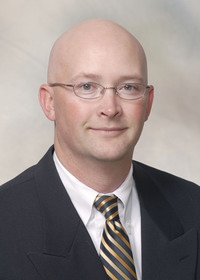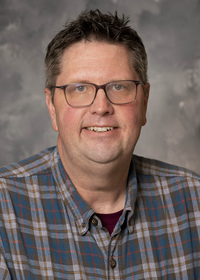Clients discuss needs with MSU scientists, agents
RAYMOND, Miss. -- Small ruminants are a popular choice for people like J.T. Crownover who want to get into the livestock business but do not want to raise cattle.
Crownover attended the Central Mississippi Research and Extension Center’s Producer Advisory Council meeting Feb. 20. The forum, where agricultural producers can discuss their needs with MSU administrators, researchers, specialists and Extension agents, was the catalyst for the university’s active small ruminant program.
A Rankin County resident and business owner, Crownover attended the meeting to voice his need for university resources that will help him plan and manage a large goat or sheep business.
“I need information about the financials,” Crownover said during the small ruminant commodity group breakout session. “What I’m looking for is a plan to help me understand how to scale out the operation and make it a business. I’d really like to have a video series focused on business plan development.
“I’ve been in business for many years, but goats and sheep are totally different. I don’t know anything about them,” he said.
Leyla Rios, Extension small ruminant specialist and assistant professor in the Department of Animal and Dairy Sciences, told the group locally grown small ruminants have a wide-open market.
“It’s up to your imagination of what to do,” she said. “You could rent them for land clearing or sell them to people who show animals or who want them for milk, cheese or meat products. Anything that is produced locally has a market, especially things like USDA-labeled food products and specialty meat cuts.”
In addition to a complete suite of educational resources for beginners, members of the small ruminant group also asked for research and education on reproductive programs and discussed the development of a small ruminant master class program.
Rios shared that the state’s first Kiko buck test was completed and funding for two more has been secured. She is beginning a research project on plant-based parasite control and collaborates with other specialists on projects to study other topics specific to small ruminants, including grazing management.
Other commodities represented at the meeting were agronomic crops, apiculture, beef/forages/equine, forestry/wildlife and vegetables/fruits/nuts.
The agronomic crops group wanted information on how to better manage deer damage and how to compensate for uneven emergence and seed spacing over varying field conditions. Producers also requested best management practices for low-input row crops, such as those planted on rental land.
Apiculture representatives asked for research on improving bee forage and education on natural beekeeping practices and enhancing crop quality.
Beef, forage and equine group members said they want information and research on marketing cattle in load lots to maximize profit, poultry litter usage in beef production and drought-tolerant forage. They also discussed beginning a livestock producer program.
The forestry and wildlife group asked for research and educational programming on disturbance management activities of invasive species of wildlife and forestry, an updated process for sharing timber prices with landowners, and continued efforts to fill Extension forestry specialist positions.
Representatives of the vegetables, fruits and nuts group asked for the vacant horticulture faculty position to be filled or a dedicated area agent with primarily Extension duties to be hired. They requested research on heirloom varieties, seed saving and cut flower production in high tunnels in central Mississippi. They also asked for educational programs for beginners and hands-on workshops for young people.
Curt Lacy, head of the Central Mississippi Research and Extension Center, thanked attendees for their time and attention.
“We appreciate you being here, and we really want to thank you for your input,” he said. “It is important that we hear from producers and stakeholders in this part of the state. We want to work on what is important to you, and this meeting is one of the ways we gather that information."


